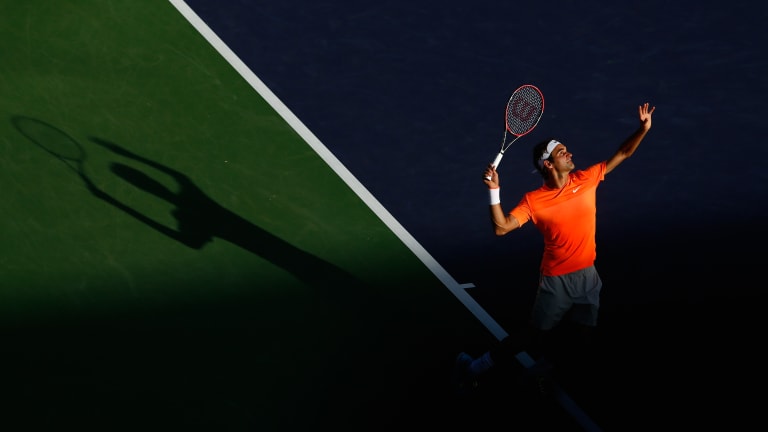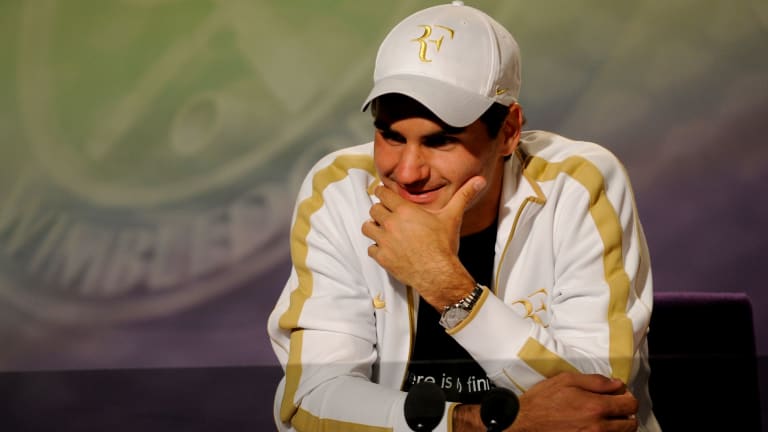Tennis Honors: Roger Federer
Missing Roger Federer
By Oct 03, 2022Tennis Honors: Roger Federer
Roger Federer rules out coaching role for now as retirement begins
By Nov 21, 2022Tennis Honors: Roger Federer
Few athletes have changed their sport for the better in as many ways as Roger Federer
By Sep 27, 2022Tennis Honors: Roger Federer
Novak Djokovic: “One of the most beautiful moments I’ve ever experienced in my life”
By Sep 26, 2022Tennis Honors: Roger Federer
Rafael Nadal’s tears revealed human side of Roger Federer rivalry: ‘An important part of my life is leaving too’
By Sep 24, 2022Tennis Honors: Roger Federer
Alcaraz, Swiatek among tennis stars tweeting tributes during Roger Federer’s last match
By Sep 24, 2022Tennis Honors: Roger Federer
Roger Federer’s Laver Cup sendoff represented everything that made his career one-of-a-kind
By Sep 24, 2022Tennis Honors: Roger Federer
#tbt: Roger Federer, Rafael Nadal team up for first doubles pairing at 2017 Laver Cup
By Sep 22, 2022Tennis Honors: Roger Federer
“The game is bright”: Roger Federer hails “new superstar” Carlos Alcaraz
By Sep 21, 2022Tennis Honors: Roger Federer
Through the years: Roger and Mirka Federer
By Sep 21, 2022Tennis Honors: Roger Federer
Missing Roger Federer
From his serve to his decency to his consistency—among other admirable attributes—it's hard to say goodbye to someone who was good in so many ways.
Published Oct 03, 2022
Advertising
Advertising

Scissoring his arms, Federer bends deeply at the knees, extends his left arm gently and fully in the toss, and explodes upward.
© 2015 Getty Images
Advertising

From Cap Cana Challenger to Miami Master
Jakub Mensik's March journey included a semifinal run on the Challenger Tour.
Advertising
Advertising
Advertising

Federer’s most cheeky interlude occurred over the course of the Wimbledon fortnight in 2009, when he abandoned his persona as a well-groomed but basically conservative Swiss.
© 2009 Getty Images